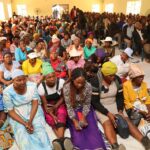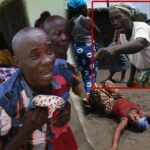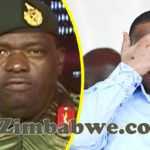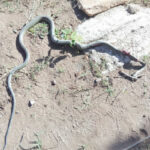The army of the Democratic Republic of the Congo (DRC) thwarted a coup against the government of President Felix Tshisekedi in the early hours of Sunday, the country’s officials have said.
At least three people were killed in the attacks in Kinshasa, and several attackers, including “foreigners” are now in custody.
Here’s what we know about what happened, who was behind the alleged coup attempt and the political churn in the DRC in the lead-up to Sunday’s attack.
What happened?
At about 4am local time (03:00 GMT) on Sunday, dozens of men wearing military fatigues and armed with submachine guns and rifles attacked the residence of Vital Kamerhe, a federal legislator who is an ally of Tshisekedi and a favourite to become the speaker of the National Assembly.
The attackers also breached the Palais de la Nation, the president’s official residence and offices – although Tshisekedi rarely uses the premises and was not present at the time. Both locations are about 2km (1.2 miles) apart in the Gombe area of the city, which is also home to several other government offices and embassies.
At least three people were killed in the shootouts that ensued, including two Congolese security officials, and the leader of the attackers, Christian Malanga. Some 50 people have been arrested, the Congolese military said, including three United States citizens.
Ammunition fired from the capital hit an area in the city of Brazzaville in the neighbouring Republic of the Congo, injuring several people. Both capitals are separated by the Congo River.
The attack lasted about three hours before it was repelled.
Who is Christian Malanga and what was his aim?
Captain Christian Malanga Musumari, who is believed to have led Sunday’s attack, was a wealthy businessman, politician and one-time military captain in the Congolese army. He was a resident of the US where his family secured political asylum when he was a child.
Although Malanga contested parliamentary elections in 2011, he was arrested and detained for several weeks under the leadership of former President Joseph Kabila. Upon his release, Malanga went to the US where he founded the opposition United Congolese Party (UCP). Over the years, Malanga campaigned for religious freedom in Africa and led anticorruption training initiatives for young Africans in Europe.
Officials said Malanga first attempted and aborted a coup in 2017 but did not give further details. In a livestream posted on Facebook during Sunday’s attack, Malanga threatened the president and chanted “New Zaire!” The DRC was formerly called Zaire.
“We, the militants, are tired,” Malanga said to the camera, speaking in Lingala as his army occupied the president’s offices. “We cannot drag on with Tshisekedi and Kamerhe, they have done too many stupid things in this country.”
Photos released later on social media showed Malanga’s corpse and that of another fighter. Officials said he was killed after resisting arrest.
Analysts are unsure what to make of the seemingly amateur attack by Malanga’s army, which ended in his death, and say he may have had internal backers who disappointed him.
“Instead of attacking strategic sites like the two airports in Kinshasa, the military camps and the RTNC [national broadcaster], the Malanga commando operation headed towards targets without stakes to overthrow the power,” said Albert Malukisa Nkuku, a professor at the Catholic University of the Congo, who pointed out that DRC presidents have rarely used the official residence because of security concerns.
“Why start an attack at the residence of Vital Kamerhe and already lose a large quantity of munitions before ending up at the Palace of the Nation?”
Who were the Americans allegedly involved?
At least three of those arrested on Sunday were American, including Malanga’s young son, according to the military.
Photos released on social media show the seized passport of another US national, Benjamin Zalman-Polun, who was allegedly involved in the Sunday attack. In a 2022 article in Africa Intelligence, Zalman-Polun was identified as a “cannabis entrepreneur” and a business associate of Malanga.
Lucy Tamlyn, the US ambassador to the DRC, expressed “shock and concern” at the coup attempt in a Sunday statement on X. “Please be assured that we will cooperate with the DRC authorities to the fullest extent as they investigate these criminal acts and hold accountable any US citizen involved in criminal acts,” she said.
What’s the backdrop to Sunday’s attack?
The DRC is highly rich in mineral resources and is one of the world’s largest producers of cobalt and coltan used in producing electronics like mobile phones. But the country has long been beset with crises.
The Congolese army is mired in fighting with the M23, a rebel group that has been advancing from the east of the country in attempts to take Goma, a strategic, mineral-rich town in the North Kivu province. Thousands of people have been displaced and forced to flee the region, and numerous others have died in the heavy fighting.
The M23 group is allegedly funded by Rwanda, although Kigali denies these accusations. United Nations and East African peacekeepers were recently expelled from the DRC as the government accused them of being ineffective.
Separately, divisions within Tshisekedi’s ruling coalition over candidates for upcoming elections to some seats in the National Assembly forced the president to postpone an internal parliament vote scheduled for Saturday.
Tshisekedi was re-elected as president in December, following a chaotic poll that opposition groups say lacked legitimacy. He is yet to form a government. Sunday’s coup attempt could give Tshisekedi a chance to consolidate his hold on the country, said Paul Nantulya, a researcher with the Africa Center for Strategic Studies.
“A coup – no matter how shambolic, disorganised and silly – is a powerful weapon in the hands of a paranoid regime,” Nantulya said. “It gives you a blank check to switch on all the draconian pieces of legislation and law, to declare martial law, to ban NGO and civil society activity, curtail movement and free speech at your whim, sow fear in opponents, and beat everyone into silence.
“This would not be the first, or the last in Congo. This is the well-worn script of failed coups, if we can call it that.”
How have DRC government and African Union responded?
Tshisekedi is yet to comment publicly, even as questions mount over how Malanga’s fighters managed to breach the security of the presidential palace.
Nkuku of the Catholic University of the Congo said the attacks revealed lapses in the DRC’s security formation that could have ripple effects on the country’s many crises. “If Kinshasa had fallen, we could fear the intensification of clashes in the east,” he said.
“We can hope that the bad wind has passed in Kinshasa, but the government and the Congolese must learn lessons from it.”
Meanwhile, the African Union on Sunday condemned the coup attempt and said it welcomed the military’s handling of the attacks. A sudden wave across the continent has seen at least five countries, particularly in West Africa, come under military rule since 2020. Al Jazeera and news agencies.

Follow @MyZimbabweNews












